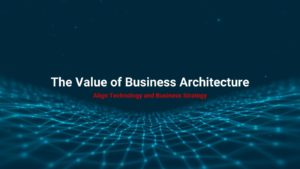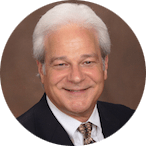Throughout history, technological inventions have always fueled growth and prosperity. However, with today’s unparalleled, rapid-fire pace of IT innovation and global adoption, it has never been more stunningly apparent that technology is at the heart of global competitiveness, enterprise excellence and sustainable success.
A Summary of My IT Career
I’ve had the privilege of playing a role in the information technology revolution for the last six decades, first as a systems engineer for IBM in the 1960s and 1970s, then as a CIO and leader of many IT-driven transformations in the 1980s, 1990s and 2000s and now as a coach, mentor and teacher to a growing community of emerging IT leaders.
During my 53-year career, I built systems, led IT departments and transformations, started my own IT leadership firm (The Feld Group) and was acquired by EDS to help transform its business from an outsourcing powerhouse to a legacy modernization force. I left EDS in 2008, about the time the iPhone began shipping and the economic downturn happened.
During that year I wrote a book called the Blind Spot – A Leader’s Guide to IT-Enabled Business Transformation. It was a simple book, written predominately for business leaders. It presented a framework we used during the Feld Group years that simplified what is, too often, an overly complex Business/IT dialogue. At the time, it was based on learnings and principles of my first 40 years of experience in IT – which paralleled what was basically the first 40 years of the IT profession in a corporate context. The book took off around the same time the “Digital Era” began to accelerate.
The Inception of The Feld Group Institute
As a result of that digital explosion and the demand it generated, I started The Feld Group Institute in 2009. We focused on sharing our experiences with the next generation of business and IT leaders. The first major client of this new institute was FedEx, a great company with a massive global IT landscape. As a product of our work with companies such as FedEx, Southwest Airlines, Bank of Montreal, Cummins Engines and a couple dozen others, two seemingly contradictory themes began to emerge. First, we’ve all had to learn more new things in the last decade than in the previous 40 years combined. The pace of change has accelerated, and that means we must learn new things all the time in order to constantly adapt to the changing business models and technology capabilities. Secondly, most of the patterns that emerged along with the guiding principles that we’ve learned over the decades of IT still apply and are critical, maybe even more critical than before, for business transformation and success in this modern digital era.
Lasting Principles That Still Hold True
The enduring and guiding principles that have mattered over time, and matter even more going forward, are things such as:
- Good architecture and engineering. In the early decades, they mattered because the technology was very expensive and limited. Now, they’re important because technology is very cheap and powerful. However, every component must be engineered to be more secure and more scalable. Even the traditional .99999 is not acceptable. There must be zero down time.
- A talented workforce that understands the business and technology. In the early years, it mattered because the development and business teams were co-located, and the dialogue needed to be collaborative. In the middle years, we outsourced, offshored and created centers of excellence. This distance from the business created layers of translators who played a global “telephone game.” Modern development values proximity and business/IT collaboration once again.
- Leadership and culture. Leaders “lived” with their teams and were not distant figures. They showed up and were active in the game. Over time, they became remote approval authorities. Competing in this modern era requires a return to hands on, quick decision-making that enables speed and control.
When compared to Finance, Manufacturing, Sales, etc., the IT profession is relatively new to business. The recognition of these consistent, common and enduring patterns, along with the establishment of guiding principles and a framework for leadership represents the maturation of the IT profession. We now have durable principles that can be learned. It’s the mission of The Feld Group Institute to use these lessons learned from our roles in, what is now, the first 50 years of IT to teach and enable the next generation of leaders to successfully drive change in the future.
Over the coming weeks and months, we’ll be writing more about these principles and our framework for planning and delivering IT-enabled business transformation. We hope you’ll stay with us and continue to read as we write more about those principles and how they apply to the Modern/Digital era. They are needed now more than ever.
Author: Charlie Feld, Founder, The Feld Group Institute
Connect with Charlie Feld on LinkedIn ![]()




